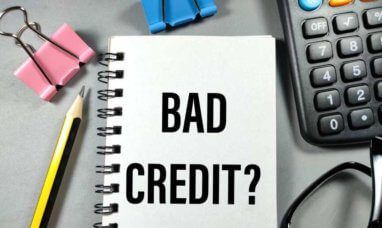When you are in need of some extra cash, a personal loan could be a great option for you. Personal loans are useful for a variety of purposes; maybe you need to consolidate debt, make a large purchase, or cover an unexpected expense.
Whatever your reason for needing a loan, it’s important to know when is the right time to take out one. In this article, we will discuss five scenarios when you should consider taking out a personal loan. Before we get started, let’s consider some important aspects of personal loans.
Personal Loan vs Borrowing From a 401k
When there’s a need to borrow money, there are several options that are accessible to individuals or families. Two of the most popular choices are personal loans or borrowing from a 401(k).
Both options have their own set of pros and cons, so it’s important to weigh all of your options before making a decision. Many people struggle with the decision of whether to take out a personal loan or borrow from their 401(k) when they need extra money.
One advantage of taking out a personal loan is that the interest rate is usually fixed, with shorter repayment terms. This means you will know exactly how much you need to repay each month. However, personal loans can be challenging to obtain if you have bad credit.
Borrowing from your 401(k) may be a better option if you can’t qualify for a good quality personal loan. The downside of borrowing from your 401(k) is that you will have to pay back the money plus interest, and, if you leave your job before the loan is repaid, you will owe the entire amount plus taxes and penalties.
401(k) Loan Debt to Income Ratio
For those with a 401(k), taking a loan from the account can be a tempting way to get quick access to cash. However, it’s important to understand the potential consequences of such a loan before making a decision.
One key consideration is the loan’s debt to income ratio. This ratio helps to determine how much of your income will go towards repaying the loan, and it can have a major impact on your financial stability.
If your debt to income ratio is too high, it could jeopardize your ability to make other debt payments or even keep up with your mortgage. As a result, it’s important to carefully consider the terms of any 401 (k) loan before moving forward.
Debt Consolidation Loans
Debt consolidation loans can be a helpful tool for people who are struggling to manage multiple debts. By consolidating all of your debts into one loan, you can make a single monthly payment that is easier to keep track of. In addition, consolidating your debts may help you to qualify for a lower interest rate, which can save you money over time.
While debt consolidation loans can be helpful, it is important to remember that they are not a magic solution to your financial problems. You will still need to be disciplined in your spending in order to avoid accumulating new debt. But, if used wisely, a debt consolidation loan could help you get your finances back on track.
When is a Personal Loan Agreement Notarized?
A notarized personal loan agreement is a legally binding document that outlines the terms of a loan between two individuals. The agreement should include the names of the borrower and lender, the amount of money being borrowed, the interest rate, and the repayment schedule.
By having the agreement notarized, both parties are indicating that they have read and agreed to its terms. This can provide some protection for both the borrower and lender in case of any disputes that may arise.
Notarizing an agreement is typically done by a licensed notary. If you are considering taking out a personal loan, it is always helpful to have a notarized agreement in place to help protect your rights.
Certificate of Deposit: Strengths and Weaknesses
In simple terms, a certificate of deposit (CD) is a type of savings account that typically offers a higher interest rate than a traditional savings account. In exchange for this higher rate, you agree to keep your money in the account for a set period of time, usually anywhere from six months to five years.
CDs are FDIC-insured, which means up to $250,000 of your money is protected in the event that the bank fails. Another advantage of CDs is that you can choose to have your interest payments sent to you monthly, quarterly, or at maturity.
This can be helpful if you need a steady stream of income. On the downside, CDs typically have early withdrawal penalties if you cash out before the maturity date. In reality, this means that you could lose some of the interest you’ve earned if you need to access your money before the CD matures.
5 Scenarios When You Should Consider Personal Loans
There are a few key scenarios when you should consider getting personal loans. Here are 5 of these scenarios:
1. When you need to consolidate your debt
If you’re struggling with repayments on multiple debts each month, a personal loan can be a good way to consolidate your debt into one single payment. This can help simplify your monthly budget and potentially save you money on interest charges.
On average, interest rates are lower on personal loans than on credit cards, so consolidating your debt into a singular personal loan can help you save money on interest over time. To save the most money possible, ensure you compare offers from multiple lenders to find the best rate.
2. When you need to make a large purchase
If you’re planning to make a large purchase, such as when you buy a new car or renovate your home, a personal loan can give you the funds you need to make a major purchase. Personal loans typically have higher limits than credit cards, so they can be a good option for financing expensive purchases.
You should also be aware of the potential consequences of taking out a personal loan, such as having to pay back the loan with interest. Before taking out a personal loan, be sure to carefully consider your financial situation and whether you’ll be able to comfortably make the monthly payments.
3. When you want to start a new business
If you’re starting a new business, a personal loan can be a good way to finance your venture. Personal loans typically have lower interest rates than business loans, so they can save you money on interest over time.
Personal loans can also be a good option for financing a business expansion. If you’re looking to add new equipment or hire new staff, a personal loan can help you get the funding you need. Ensure you create a detailed business plan and compare loan offers before you apply.
4. When you need money for an unexpected expense
Personal loans can be a good way to cover unexpected expenses, like medical bills or car repairs. You may want to use money from something such as an emergency fund first, if that is an option, before securing a loan. But, if you don’t have the funds available, a personal loan can help you get the money you need quickly. Just be sure to compare interest rates and terms before you apply.
If you’re considering a personal loan, be sure to compare offers from multiple lenders. Consider factors like interest rates, repayment terms, and fees before you apply. And remember, a personal loan should only be used for expenses that you can’t afford to pay for with your savings.
5. When you want to improve your credit score
If you have good credit, you may be able to qualify for a personal loan with a lower interest rate. And if you repay on time, you can use a personal loan to improve your credit score. Just be sure to compare offers from multiple lenders to find the best deal.
A good way to improve credit score is by repaying loans regularly and at the appropriate time. However, unforeseen circumstances can prevent a borrower from repaying at the right time. If you are afraid you would be missing a payment, it would help to secure a personal loan to avoid impairing your credit score.
The Bottom Line
No matter what your reason for needing a personal loan, it’s important to do your research and compare offers from different lenders. Use our top 5 scenarios as a starting point, but remember to tailor the information to fit your own unique needs. By taking the time to find the best personal loan for you, you can save yourself money and hassle in the long run.
Featured Image: Megapixl








